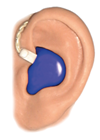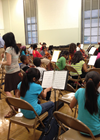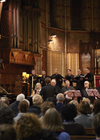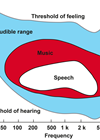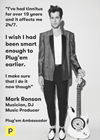ENT features archive for 2016
The sound of music for adult cochlear implant recipients
Dr Valerie Looi has dedicated her academic career to investigating music perception in people who have cochlear implants, and more recently, the potential of music training for improving their music perception. This article outlines current research relating to music perception...
CI music: seeking perfection, accepting reality
Having just read about the challenges cochlear implant technology and music appreciation present, the musician Richard Reed beautifully illustrates the realities of this patient journey. An old friend of mine is an ardent music fan, and completely tone deaf. Long...
Vocal cord dysfunction and dysfunctional breathing: an evolving clinical paradigm
Patients frequently present to the ENT department with breathing difficulties. The entity of ‘vocal cord dysfunction’ (also known as paradoxical vocal cord movement, inducible laryngeal obstruction, and many other names) is increasingly well recognised. Ravi Thevasagayam gives us an overview....
IEM – no noise is good noise!
Whether you’re an active musician or a music-loving commuter, noise exposure via music is a very real concern. Musician, sound engineer and Puretone Sales Manager, Deke Frickey, looks at where the dangers lie and the best ways to overcome them....
Music, hearing, and education: from the lab to the classroom
Historically, research assessing the impact of musical training has focused on those children whose families are able to pay for private lessons. In this article however, Nina Kraus outlines the findings of one of her recent projects; assessing the impact...
Singing after laryngectomy: Shout at Cancer
Thomas Moors is an ENT junior doctor with a background in music and singing. Combining these interests, he has set up a charity to help patients who have had a laryngectomy. He has achieved considerable public attention, and he tells...
Optimising hearing aid processing for music appreciation
Hearing aid manufacturers’ main focus has, up until recently, been improvement of speech intelligibility. Today’s hearing aid users have much broader demands however and often cite improved music perception as a key outcome or goal. Drs Tish Ramirez and Rebecca...
BTA Plug’em campaign – teaching young people how to enjoy live music safely
In today’s world of ever-increasing sound levels, the Plug’em campaign, run by the British Tinnitus Association (BTA), is highlighting the issue of tinnitus caused by loud music in people aged 16-25 years old. The purpose of the campaign is to...
'If music be the food of love, play on'
Christopher Aldren Consultant Otolaryngologist, Wexham Park Hospital, UK. Chris playing at Cambridge garden party 2003. Chris with wife and sons Tom and Alex in family quartet. Chris leading the Doctors Orchestra at the Cadogan Hall in London. Christopher Aldren, Consultant...
Chronic rhinosinusitis management: back to the future?
Immunology is a dim and distant medical school memory to many ENT surgeons, but the increasingly complex immunology of chronic rhinosinusitis is fascinating (honestly!). Medical management options in CRS no longer just involves saline and steroids, and we need to...
Staphylococcus aureus as a cause of refractory chronic rhinosinusitis
Staphylococcus aureus has long been linked to chronic rhinosinusitis, particularly recalcitrant cases. In this article, Alkis Psaltis describes how newer techniques have shown higher rates of S. aureus infection than were previously thought, and explains how the bacteria are able...
The role of macrolide antibiotics in chronic rhinosinusitis
The use of long-term antibiotics in the treatment of chronic rhinosinusitis is a contentious issue, not only because of the increasing problem with antibiotic resistance but also because of the potential cardiac risks, including sudden death. In this article, Anders...





